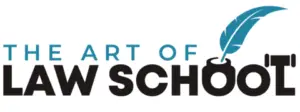Ever felt like you’re searching for a needle in a haystack? That’s what issue spotting can feel like to law students. A whirlwind of cases, principles, and exceptions; it’s easy to miss the key issues.
But imagine having x-ray vision – seeing through the legal clutter straight to the heart of any case. Sounds cool, right?
This is no comic book superpower; it’s an essential skill every law student needs to master: Issue Spotting!
We’ll share strategies that will help sharpen your issue-spotting skills. You’ll learn how technology can lend a hand and why guidance from mentors matters so much.
By sticking with us, you’ll gain insights that could make all the difference in your studies…and perhaps even kickstart your career into high gear! Ready for this journey?
Jump Ahead To:
Understanding Issue Spotting in Law

Issue spotting plays a pivotal role in the legal field, acting as a linchpin for successful law practice. Lawyers and law students must master this art of identifying underlying issues within complex legal scenarios.
A core aspect of issue spotting is understanding its relevance to litigation and trial practice. Lawyers need keen observational skills to discern subtle hints leading towards hidden legal issues.
The importance of issue spotting goes beyond classroom learning or passing law school exams. It also prepares you for real-world situations where swift identification of potential problems can be the difference between success and failure.
The Role Of Analytical Thinking In Issue Spotting
Analytical thinking forms the bedrock of effective issue spotting. Consider it your personal detective kit that helps unravel complexities within cases by breaking them down into manageable pieces.
In essence, analytical thinking empowers you with deductive reasoning – similar to solving puzzles piece by piece until you see the full picture. This skill enables better interpretation of laws and regulations applicable in each case scenario while also facilitating quicker recognition when patterns emerge over time.
Importance Of Comprehensive Understanding Of Legal Principles
A comprehensive understanding of legal principles is another critical component for effective issue spotting. It’s like having a well-equipped toolbox at your disposal; each tool represents a different legal principle that you can apply in accordance with the demands of the case in hand.
Key Skills Required for Effective Issue Spotting

To be an effective issue spotter, you need certain skills.
Analytical Thinking
To start with, analytical thinking is vital. This means looking at information from different angles and breaking it down into smaller parts. Think of it as dissecting a puzzle – every piece counts.
Keen Observation
A keen eye for detail goes hand-in-hand with analytical thinking when identifying potential legal problems within case studies or scenarios. Your observation skills will help you detect subtle yet significant elements that could imply larger legal issues.
Firm Grasp on Legal Principles
A comprehensive understanding of legal principles is another essential ingredient in effective issue spotting – this can’t be overstated. Knowing these principles allows you to recognize when they may have been violated or are applicable in specific situations – think of it as having a mental library full of reference books.
Tailored Attention to Detail
Last but not least, tailored attention plays its part too. You must learn how to filter out noise and focus only on pertinent facts.
Throughout your journey towards becoming an accomplished ‘issue-spotter,’ remember: practice makes perfect. The more effort expended refining these abilities, the better your proficiency will develop over time.
Common Challenges in Issue Spotting for Law Students
Identifying legal issues from complex scenarios can be a challenge for law students. For starters, many law students struggle with recognizing the legal issues embedded within complex scenarios.
This difficulty often stems from a lack of familiarity with diverse areas of law. To identify issues accurately and efficiently, you need to have a solid grasp of various legal principles and doctrines.
The Curse of Knowledge Bias
Another common challenge lies in overcoming what psychologists call “the curse of knowledge bias.” This cognitive bias leads us to assume others understand things at our level when they may not. As law students deepen their understanding through studies, this can cause them to overlook or oversimplify crucial details while identifying issues.
Lack Of Practical Experience
No textbook or case study fully prepares you for the complexities faced during actual legal proceedings. Lack of practical experience is another major hurdle for most beginners as nothing quite matches up against hands-on exposure when it comes down to honing one’s skills.
The Pressure of Time Constraints
Last but not least, the ticking clock. Exams and real-life legal scenarios often come with time constraints. Under pressure, even well-prepared students might miss crucial details or fail to connect dots that they would otherwise catch.
In summary, understanding these challenges is the first step towards improving your issue-spotting skills. So let’s put on our detective hats and start unearthing those hidden issues.
Strategies to Improve Issue Spotting Skills

It can be difficult to become adept at issue-spotting, a critical aptitude for any law student. Let me share some strategies that have helped students like you improve their issue-spotting abilities.
Familiarize Yourself with the Legal Framework
The first step in improving your ability to spot issues is gaining a comprehensive understanding of legal principles and frameworks. This doesn’t just mean memorizing laws, but also understanding how they apply in different contexts.
Legal research tools can be extremely useful here as they provide access to case studies and judgments which will help develop this deeper understanding.
Practice Analytical Thinking
Analytical thinking skills are crucial when trying to identify potential issues within complex scenarios. It helps if you start practicing analytical thinking outside of your study time too; perhaps by playing logic-based games or solving puzzles.
This might sound surprising but believe me, it works. A mind trained analytically spots patterns faster, including legal ones.
Mind Mapping: A Visual Approach
If visual learning appeals more to you then consider creating mind maps while studying cases or reading textbooks. They can give clear overviews of facts and related laws thus helping spot hidden connections between them quicker.
Past Exams & Moot Courts: Practice Makes Perfect
Finally, make sure to practice with past exam papers and participate in moot courts. Moot court experiences let you deal with real-life legal issues which significantly improve your issue-spotting skills.
Past exams on the other hand give an idea of how questions are structured and what sort of issues typically arise.
Incorporating Technology to Aid Issue Spotting
Technology has revolutionized the legal landscape, offering novel ways for law students to enhance their issue spotting skills. This can range from digital study tools that foster a more comprehensive understanding of complex laws and cases, to AI-powered applications designed specifically for legal analysis.
Digital Study Tools: Making Legal Research Easier
The importance of reliable research cannot be overstated when dealing with intricate laws and numerous precedents involved in issue spotting. Online databases like WestLaw or LexisNexis make it easier than ever before for law students to find relevant case-law quickly and efficiently. They let you delve deeper into similar previous cases, rulings, arguments made by attorneys – all invaluable resources while honing your own ability at recognizing issues.
Taking Advantage of Artificial Intelligence (AI)
If we have learned anything over recent years about AI technology, it is its surprising capacity at outperforming humans in tasks previously considered exclusive human domain. Case-in-point being IBM’s Project Debater; able not only argue with humans on complex topics but also develop arguments for both sides of a debate. Applying such AI technology to legal studies can give students an edge in issue spotting.
Take for example, CaseText’s CARA. This is an AI-powered research assistant that uses the context from uploaded documents to suggest cases that are highly relevant.
Role of Professors and Mentors in Enhancing Issue Spotting Skills

The influence of professors and mentors on a law student’s journey can’t be overstated. Their guidance is crucial to mastering the art of issue spotting.
Expert Insight:
A professor’s knowledge base, built over years studying and teaching law, equips them with unique insights into the complexities of legal scenarios. They help students navigate through case studies by shedding light on subtle details that might otherwise go unnoticed.
Mentorship Matters
Mentoring complements classroom learning but adds an additional layer – personalized attention. A mentor guides you based not only on general principles but also your specific strengths and weaknesses.
Frequent Feedback Loops
Professors’ feedback serves as a roadmap for improvement. Regular critique from experts allows students to recognize patterns, identify common mistakes, and make necessary corrections promptly which are pivotal in enhancing one’s ability to spot issues effectively.
Clinical Programs and Internships
The role of professors extends beyond classroom lectures. They also guide students through clinical programs and internships, which offer real-world exposure to law practice.
These programs give students a real-world taste of the law. Under the guidance of seasoned faculty, they get to manage genuine cases in a safe and structured environment. It’s hands-on learning at its finest, straight from institutions like Harvard Law School.
Impact of Improved Issue Spotting on Legal Career
Better issue spotting skills can give a serious boost to your legal career. How does it help one’s legal career? Let’s dig into the details.
Better Case Analysis
When you’re able to spot issues more effectively, your ability to analyze cases improves significantly. As law is a puzzle, it’s essential to be able to identify the shape and place for each piece in order to comprehend the full picture. The better you get at identifying the shape and place for each piece (i.e., spotting issues), the clearer the overall picture becomes.
A keen eye for issue spotting lets you understand what really matters in a case. It helps separate crucial facts from distracting information. This means less time wasted and more productive hours spent building strong arguments or defenses.
Increase in Employability
Firms value lawyers who have excellent issue-spotting abilities because they are often quicker at understanding and resolving client concerns – something every firm wants. So sharpening these skills doesn’t just make you better at law; it makes you more employable too.
The National Association for Law Placement’s 2023 Report emphasizes problem-solving capabilities as one of the most sought-after traits by employers when hiring new associates.
Confidence in Legal Discussions
Becoming proficient at issue spotting doesn’t just make you a better lawyer on paper. It gives you confidence during legal discussions and negotiations. You can quickly identify the heart of the matter, articulate it clearly, and respond with relevant points.
This increased confidence can lead to more opportunities within your firm or even open doors for speaking engagements, guest lectureships, or becoming an authority figure in your chosen field. ABA Journal mentions that this kind of professional recognition contributes significantly towards career advancement.
Frequently Asked Questions
1. Why is issue spotting crucial for law students? Issue spotting is essential for law students as it helps them identify the key legal points within complex scenarios. This skill is vital for both excelling in law exams and for successful legal practice, where quickly recognizing and addressing legal issues can significantly influence outcomes.
2. How does analytical thinking aid in issue spotting? Analytical thinking enables students to logically break down cases and legal scenarios into their essential elements. This structured approach to thinking helps in identifying underlying legal issues more clearly and efficiently.
3. What are some common challenges in issue spotting for law students? Law students often struggle with recognizing relevant legal issues due to a lack of familiarity with various legal areas, overcoming knowledge bias, dealing with the lack of practical experience, and managing time constraints effectively.
4. Are there any specific strategies to improve issue spotting skills? Key strategies include familiarizing oneself with the legal framework, practicing analytical thinking, using mind maps for visual learning, regularly practicing with past exam papers, and participating in moot court competitions.
5. How does a comprehensive understanding of legal principles aid in issue spotting? A deep understanding of legal principles is like having a toolbox for analyzing legal scenarios. Knowing these principles allows law students to recognize when they are applicable and how they can influence the identification and resolution of legal issues.
Conclusion
Mastering issue spotting in law is an essential journey towards legal proficiency. It requires a blend of strategic thinking, sharp observation, and the right mindset. As you delve deeper into your studies, applying these skills will gradually illuminate the nuances of legal analysis, transforming challenges into strengths.
Your journey is bolstered by the wisdom of mentors and the power of technology, with AI applications and research tools serving as invaluable allies. Remember, proficiency in issue spotting is a skill honed over time through persistent practice and dedication. Keep applying the strategies and insights shared, and watch as your ability to navigate the complexities of the law becomes second nature, turning the once-daunting task of finding that proverbial needle into a clear and achievable goal.

